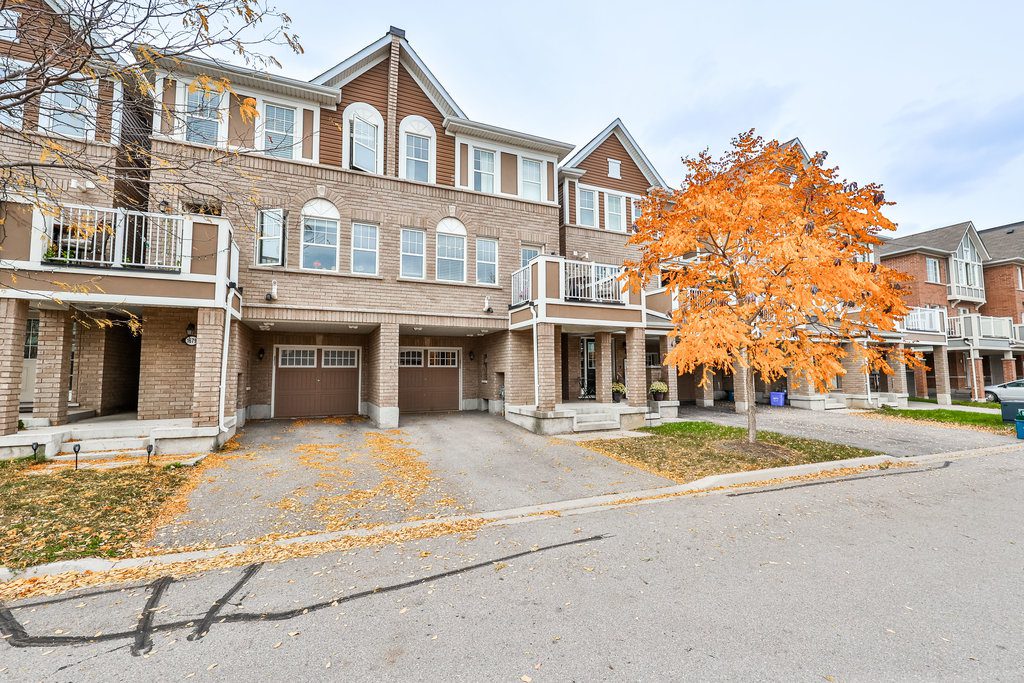There are a variety of reasons that you might choose to sell your home before the mortgage term ends. The most common scenario is when you move to a new location or your family situation has changed with the addition of children or when they move out. In all these cases, your home no longer meets your needs, and you may want to break your mortgage contract. If you are considering selling your house early, make sure that you understand the costs that are associated with breaking the mortgage contract.
The Costs of Breaking the Mortgage Contract
The cost of selling your home before the mortgage term ends and breaking the mortgage contract will depend on your mortgage type. If you have an open mortgage, you can sell your home without paying penalties for breaking the mortgage contract.
However, if you have a closed mortgage, there will be penalties for selling your home before the term is up. The highest cost will be the pre-payment penalty, which is the fee for breaking the mortgage contract. The pre-payment penalty can be thousands of dollars and will vary based on the terms of your mortgage contract. There will also be administrative fees, appraisal fees, reinvestment fees and a mortgage discharge fee, which removes the charge on your current mortgage and registers a new one.
You may also have to repay any cash-back or line of credit you received when you got your mortgage. These fees can make breaking a mortgage before the term ends very pricey.
Options for Breaking the Mortgage Contract
There are options if you are thinking about selling your house before the mortgage term is over. Some mortgage lenders may allow you to extend the length of your mortgage while beginning a new mortgage in a Blend-and-Extend option. In this option, the interest rates for the old and new terms are blended, and you won’t have to pay the pre-payment penalty. However, you may need to pay administrative fees.
Unfortunately, not every mortgage lender offers this option, so the only other choice is to break the mortgage contract. In this case, you may get a lower interest rate on your new home, but you will have to pay a pre-payment penalty for breaking the contract. If you have a choice in whether you sell your home before the mortgage term ends, ensure that the benefits of breaking the contract early outweigh the costs of paying the pre-payment penalty and any other associated fees.
Pros and Cons of Selling Your Home Early
It can be tempting to break your mortgage or sell your home if you see a lower interest rate or a home that better meets your needs. In some cases, you may not have much of a choice in the matter, such as if you have to move for work. Here are some of the pros and cons of selling your home before the mortgage term ends and breaking the contract:
Pro: You may be able to get a lower interest rate and pay off the mortgage faster if you keep the payments the same. When moving into a new house, it is possible that you could get a lower interest rate than on your previous mortgage, and if you budget your mortgage payments as if you are paying into your old mortgage, then you could pay off your new mortgage early.
Con: You could end up paying more in the long run because of fees and a pre-payment penalty. The fees for breaking a mortgage before the term ends are very high, and even if you make higher payments on your new mortgage, there is no guarantee that the interest saved will be enough to cover the penalties. However, your mortgage advisor can run the calculations for you.
Pro: You may be able to lock in a lower interest rate for the new mortgage term. Selling your house allows you to look for a lower interest rate for your new home, saving you money in the long run.
Con: You may no longer qualify for a mortgage under current economic conditions. Times are tough, and it could be that you are selling your house not to buy a new one but to move into a rental. If this is the case, ensure that the benefits of selling your home early outweigh the costs of the penalties.
What Penalties May Look Like
Many homeowners who decide to post a for-sale sign on their front lawn might be surprised to endure the sizeable penalty, mainly because of how interest rates have evolved since 2019. According to Canada Mortgage and Housing Corporation (CMHC), in June 2019, the average conventional fixed mortgage lending rate for a five-year term was 4.23 per cent. By June 2021, it had fallen to 3.26 per cent. In June 2024, it surged to 5.9 per cent.
Mortgage lenders can use various techniques to impose penalties on borrowers before their loans expire. Industry experts assert that the most common formula banks use is the difference between the lender’s present rate and the contractual rate, which is also referred to as an interest rate differential (IRD).
For instance, you have a $300,000 mortgage balance with a fixed rate of three percent on your conventional five-year term, and there are three years left in your contract. The lender will assess the interest rate on three-year mortgages. Put simply; the financial institution will crunch the numbers and determine the difference between the rate being charged on a five-year mortgage and what is charged on a three-year mortgage, multiplying that by your mortgage balance and the time remaining in the term.
Once again, there could be a notable difference because of how mortgage rates have fluctuated over the last few years.
Meanwhile, some experts say that you can trim your penalties by taking advantage of your pre-payment features. You can either pay a portion of the mortgage early without incurring penalties or max out your pre-payment tools, meaning you will lower the total balance without triggering added costs. Additionally, open mortgages can provide you with more flexibility.
That said, if you have a variable rate and closed mortgage, you will usually be forced to pay three months of interest. If you have a fixed-rate and closed mortgage, you will either endure three months’ worth of interest or the IRD amount.
In the end, sellers should consider a couple of things before selling their home before mortgage expiration.
The first is requesting a payoff quote. Speak with your mortgage lender and obtain a payoff amount, which is the amount owed on the loan. The second is calculating your home equity. How much equity do you have in your home? This could play a significant role because it will be the difference between the market value of your single-family house, townhome, or condominium suite and the remaining mortgage balance.
Gather All the Information
Before selling your house early, make sure that you read all of the fine print to see what costs are associated with breaking the mortgage contract. It is prudent to speak with a mortgage specialist and even a real estate agent to ensure that you have all of the necessary information. A mortgage adviser can provide valuable advice to navigate the possibility of selling your home before the mortgage term ends.
Thinking about making a move? We can help you determine what the best strategy is for you and your family. Reach out to us today.
Source: Re/Max Canada

































